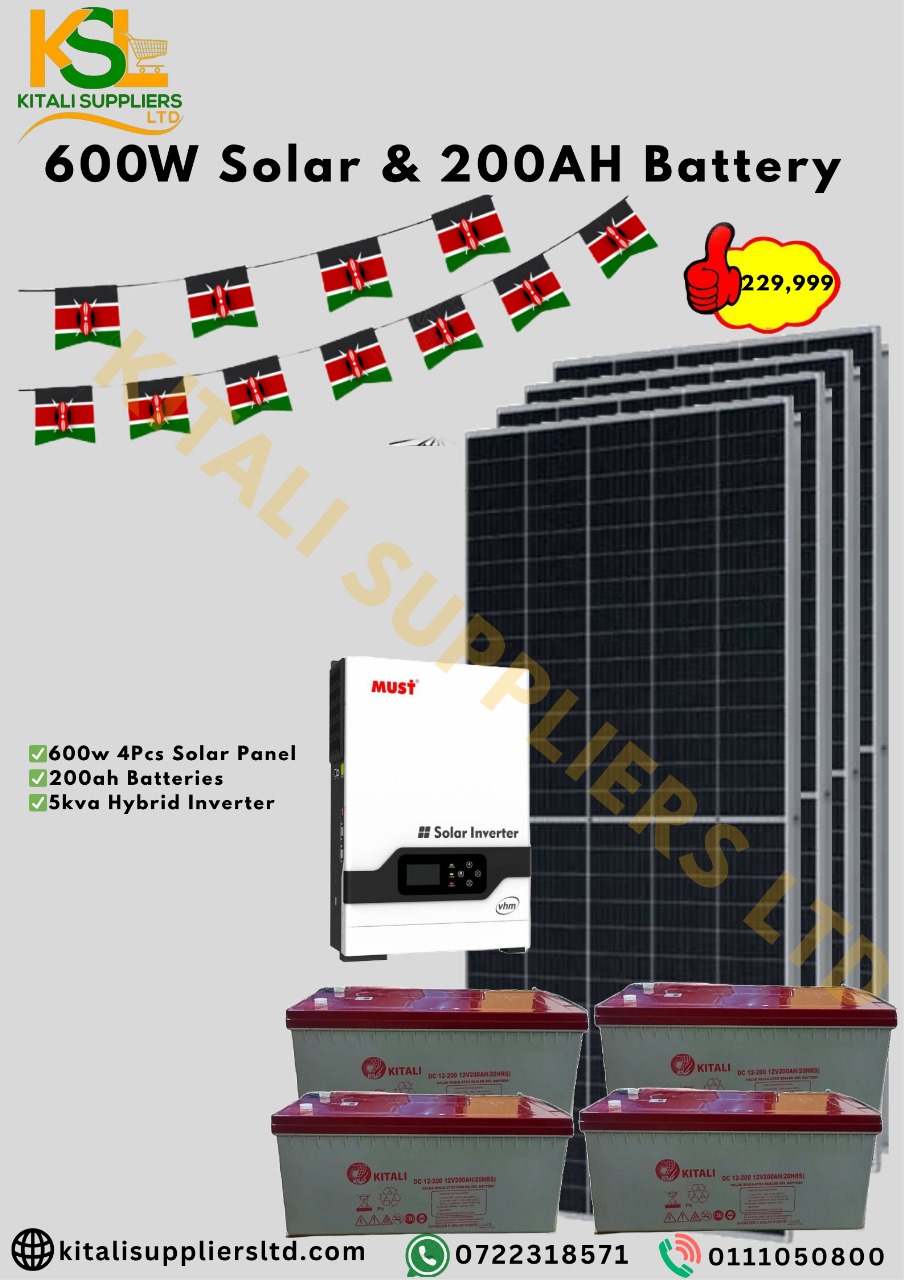A solar power system consisting of four 600-watt solar panels, four 200Ah deep-cycle batteries, and a 5kVA MUST hybrid inverter represents a comprehensive, high-capacity renewable energy solution tailored for both residential and light commercial use. The four 600W solar panels, totaling a peak power output of 2400 watts (2.4 kilowatts), are capable of generating substantial electricity during peak sunlight hours—ideal for charging batteries and supplying power to electrical loads simultaneously. Assuming an average of 5 effective sun hours per day, these panels can generate approximately 12kWh of electricity daily, which is sufficient for powering a range of household appliances such as lights, fans, refrigerators, TVs, and even small air conditioning units when managed efficiently. The four 200Ah batteries, often configured in a 48V system for better efficiency and reduced current loss, collectively offer a total storage capacity of 38.4kWh (calculated as 200Ah × 4 batteries × 12V = 9.6kWh at 12V, or 200Ah × 4 = 800Ah at 48V = 38.4kWh). This storage is crucial for providing continuous power supply during nighttime hours, cloudy weather, or power outages, ensuring a consistent and stable energy source. The 5kVA MUST hybrid inverter plays a pivotal role by integrating solar input, battery storage, and grid or generator backup into a single smart system. It is designed to manage energy flow efficiently, converting the DC power from solar panels and batteries into AC power suitable for household use, while also functioning as a battery charger and grid synchronizer when needed. Many models of the MUST inverter also come with MPPT (Maximum Power Point Tracking) charge controllers, which optimize the energy harvest from the solar panels, as well as advanced features such as load prioritization, programmable charging settings, remote monitoring, and automatic switching between power sources. This entire setup not only reduces dependence on the national grid and helps lower electricity bills, but it also increases energy security and contributes to environmental sustainability by harnessing clean, renewable solar energy. When properly installed and maintained, this kind of system can provide long-term energy independence, reduce the impact of power interruptions, and ensure reliable power for years to come.





